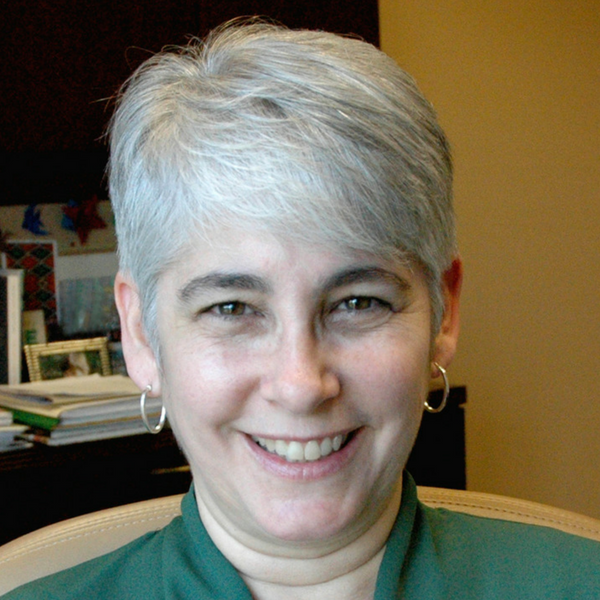GEO’s 2018 National Conference was held in San Francisco on April 30 – May 2, 2018. In this post-conference Perspectives series, we asked a few members to share their conference takeaways and to consider how they will continue to make progress on the issues that matter most to them. How will you continue the momentum of the conference in your work?
“This is uncomfortable work,” said almost every plenary participant at the 2018 GEO National Conference. Although the reference was specifically about considering race, equity and inclusion, I can say I have felt uncomfortable almost every day of my 12 years in philanthropy as a program professional managing a portfolio of capacity building and arts and culture related work. This is not a complaint but an admission of a lurking and lingering sense of unease — with, among many things, the inherent power of being a program officer and with the transformational change we hope nonprofits can accomplish within a funding structure often focused on shorter-term restricted grants. And now I can truly add a ratcheted-up level of discomfort as we weave in a recognition of the incontrovertible racial disparities that touch every aspect of life and our work.
The conference made clear that I am not alone in this deep disquiet, for which I am most grateful, as sustained discomfort can lead to a form of learned helplessness. The good news — the conference was enlightening and also offered several paths forward, both for dedicated capacity builders and those focusing on networks and collaborative approaches.
Regarding capacity building, the conference sessions on full cost funding and flexible funding for capital reserves made strong cases for funders to truly understand the cost of nonprofit programs and operations and loosen the reins of restricted funds. Virginia G. Piper Charitable Trust has long focused on strengthening the organizational resilience of our nonprofit partners, offering programs ranging from annual trainings to intensive, multi-year cohort efforts that link flexible grants to comprehensive organizational assessments.
Piper Trust recently added a focus on financial management as we seek to understand if linking substantial flexible funds to business plans creates stronger organizations that can effect transformational change. Learnings to date indicate that centering grants on well-considered capacity and business plans can help our nonprofit partners identify and confidently advocate for their full costs and needs and strategically plan for the future from a position of financial strength. This knowledge and confidence also can change the nature of conversations with Piper Trust and other funders, thereby lessening the power imbalance.
Regarding networks and collaborations, Piper Trust believes that solving complex social issues is not an individual endeavor for us or any one nonprofit. We are exercising our convening muscle more intentionally than ever through a major initiative focused on community resilience that brings together cross-sector communities of practice. These communities of practice map out and identify gaps in service and funding systems, and design collaborative efforts to address these gaps. Conference sessions addressing efforts in London, England and California on the intricacies of convening multiple stakeholders offered helpful frameworks and tools to guide community outreach and closely listen to community feedback. Learning about other communities’ experiences is a soothing and inspirational balm for the discomfort of working in new ways with new partners.
Emerging from discomfort brings excitement. What animates me is the possibility of merging our organizational and community resilience efforts that currently operate on parallel tracks. For example, what skills does it take to truly collaborate? Are there key nonprofits within our communities of practice that require significant capacity building we can offer to benefit the community as a whole? Will marrying these efforts bolster the possibilities of transformational change? Stay tuned, as we intend to find out.
Finally, I want to personally thank GEO for naming discomfort, insisting we face it and highlighting ways to effectively move forward in ways that can meet foundations where they are. Some funders can address race, equity and inclusion more forcefully at this time than others. A common understanding of inequity, its roots and the intense discomfort this knowledge brings are necessary no matter where you and your foundation are in this journey.
Ellen Solowey has worked at Piper Trust for almost 11 years and is the program officer for arts and culture. Ellen also oversees the Trust’s organizational effectiveness programs to strengthen nonprofits, focusing on multi-year investments and support for grantees. Originally a specialist in Soviet studies, Ellen holds a master’s degree in social work from Arizona State University and a master’s degree in international affairs and Soviet studies from Columbia University.
Virginia G. Piper Charitable Trust supports organizations that enrich health, well-being, and opportunity for the people of Maricopa County, Arizona. The Trust concentrates its efforts in six areas: arts and culture, children, education, healthcare and medical research, older adults, and religious organizations. Piper Trust works side-by-side with nonprofit organizations as a partner, helping them to identify problems, build expertise, find solutions, and become continually stronger and more effective. The Trust strives to be a vital part of Maricopa County—not only as a source of leadership and financial support, but as a neighbor sharing a lasting stake in the county’s future. Since it began awarding grants in 2000, Piper Trust has invested more than $397 million in local nonprofits and programs. You can follow Piper Trust on Twitter or Facebook.

